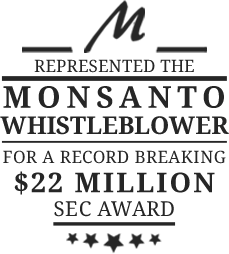Retaliation against SEC Whistleblowers
If you’re considering blowing the whistle on a company or organization that has been engaging in illegal activity, you might be worried about retaliation against SEC whistleblowers. Whistleblowers’ identities are carefully protected under the law, but it’s understandable that you would be concerned about retaliation.
It’s true that companies and high-up officials don’t appreciate when their wrongdoing is exposed. They could try to retaliate against you if they discover your identity. However, the law does protect whistleblowers, and here are some ways you will be protected.
Protections against Retaliation for Blowing the Whistle
Retaliation is when an employer or someone in a position of power takes action against a whistleblower as a reaction to the person blowing the whistle. Retaliatory actions could include firing, disciplining, denying overtime or a promotion, intimidation, harassment, making threats, reducing pay or hours, and more.
Federal law allows you to file a claim if you have been retaliated against because you were brave enough to report wrongdoing. In addition, the U.S. Securities and Exchange Commission (SEC) is authorized to take legal action against anyone who has retaliated against a whistleblower.
It’s important for you to know that protections extend to SEC whistleblowers who have reported securities law violations to the SEC. You might not have the same protections if you did not report wrongdoing to the SEC and instead only reported it internally. It’s best to talk to a lawyer about your rights and options.
Connect with an SEC Whistleblower Lawyer
Retaliation against SEC whistleblowers is a real concern, but you don’t have to accept retaliation as inevitable. You can file a claim against an employer or agency that has retaliated against you. Learn more about the consequences of being a whistleblower when you talk to an SEC whistleblower lawyer at Meissner Associates. Fill out the form below to reach our firm or call 1-866-764-3100.









